A list of films produced in Argentina in 1974:
The year 1974 in film involved some significant events. Columbia Pictures and Metro-Goldwyn-Mayer (MGM) celebrated their 50th anniversaries.
Pablo is a Spanish form of the name Paul.
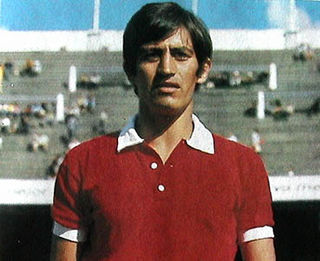
Héctor Casimiro Yazalde was an Argentine professional footballer who played as a striker.
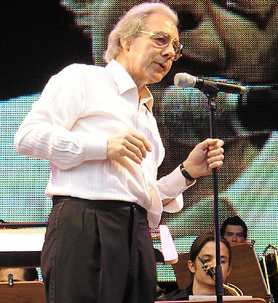
Boris Claudio "Lalo" Schifrin is an Argentine-American pianist, composer, arranger, and conductor. He is best known for his large body of film and TV scores since the 1950s, incorporating jazz and Latin American musical elements alongside traditional orchestrations. He is a five-time Grammy Award winner; he has been nominated for six Academy Awards and four Emmy Awards.
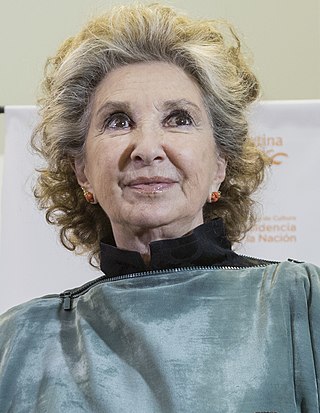
Norma Aleandro is an Argentine actress. She is considered one of the most celebrated and prolific Argentine actresses of all time and is recognized as a cultural icon in her home country.
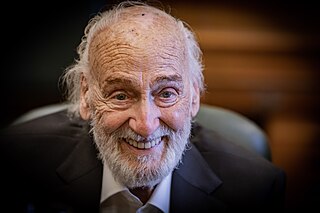
Héctor Benjamín Alterio Onorato is an Argentine theatre, film and television actor, well known both in Argentina and Spain.
León Klimovsky Dulfán was an Argentine film director, screenwriter and producer notable for his work during the classical era of Argentine cinema. He was known mainly for his work in Spanish cinema during the 1960s and '70s.

Cinema of Argentina refers to the film industry based in Argentina. The Argentine cinema comprises the art of film and creative movies made within the nation of Argentina or by Argentine filmmakers abroad.
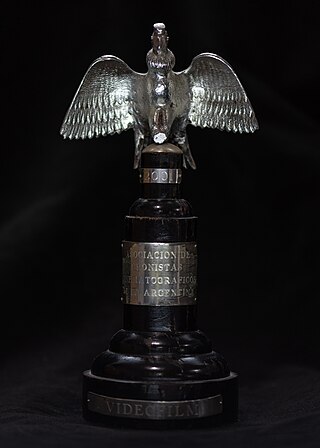
The Argentine Film Critics Association is an organization of Argentine-based journalists and correspondents. The association presents the Silver Condor Awards honoring achievements in Argentine cinema. The awards are considered Argentina's equivalent of the Academy Awards.
Evita may refer to:
This is an index to pages listing Argentine films ordered by year of release. For an A-Z list, see Category:Argentine films.

Olga Zubarry was an Argentine actress who appeared in film between 1943 and 1997. She made over 60 appearances in film, spanning six decades of Argentine cinema, but is best known for her work during the Golden Age of Argentine cinema. Throughout the course of her career, she received four Silver Condor Awards, two Martín Fierro Awards, a Konex Foundation Award and several others for her films and television performances. She is credited with starring in the first film in Argentina which featured nudity, though only her back was shown and she stated repeatedly that she wore a flesh-colored mesh and was not truly nude.

Daniel Tinayre was a French-born Argentine film director, screenwriter and film producer notable for his work during the classical era of Argentine cinema (1930s–1950s) and the 1960s.

Lautaro Murúa was a Chilean-Argentine actor, film director, and screenwriter. He is one of the best known actors in the cinema of Argentina.

Héctor Olivera is an Argentine film director, producer and screenwriter. Olivera worked mainly in the cinema of Argentina, but also has directed or contributed to several films made for the United States market.
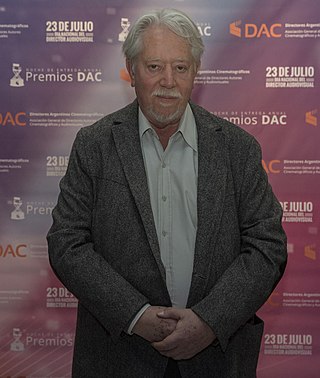
Luis Adalberto Puenzo is an Argentine film director, producer and screenplay writer. He works mainly in the cinema of Argentina, but has also worked in the United States.

Leo Fleider was a Polish born Argentine film director and screenwriter, notable for his work during the classical era of Argentine cinema.

Emilio Vieyra, sometimes credited as Raúl Zorrilla, was an Argentine film director, actor, screenwriter and film producer, between 1950 and the 1990s. He was born in Buenos Aires, Argentina. He is mostly known for his action and horror films, which were usually grounded in the exploitation genre.

Sebastián Lelio Watt is a Chilean director, screenwriter, editor and producer. He received critical acclaim for directing the films Gloria (2013) and A Fantastic Woman (2017), the latter of which won an Academy Award for Best Foreign Language Film.
The Silver Condor Award for Best Film, given by the Argentine Film Critics Association, awards the best film in Argentina each year: There were no ceremonies held in 1958, from 1974 until 1980, and in 1983.